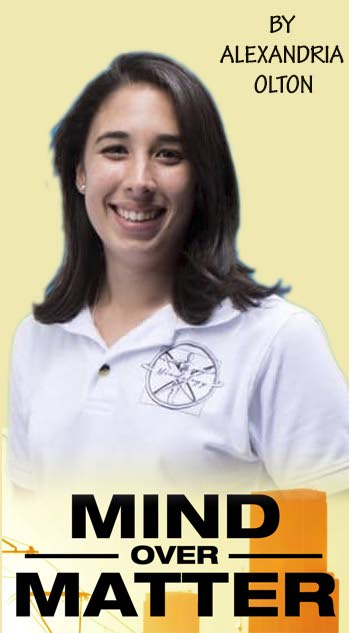The Zeigarnik Effect

IT’S usually around this time of the Christmas season that we as individuals begin to reflect on the year that is coming to a close. Usually prompted by conversations with family and friends, over meals or drinks, we find questions such as, “what do you hope for in the new year,” or “how did 2021 treat you?” swirling around the room. And with a fresh start mere days away it’s hard not to be introspective in those moments. We often try to identify some of the things we might have achieved, we acknowledge the pain or struggles we may have endured and indeed we list some of the hopes and goals for the new year.
Without a shadow of a doubt, the year 2021 has brought a mixed bag of emotions for many. I find myself feeling both a sense of relief and uncertainty simultaneously which seems almost oxymoronic if you ask me. But with the onset of Omicron, it’s hard not to think that the world has found itself full circle, back to where we began.
Certainly, for many of our athletes and coaches locally, 2021 was a most challenging year in sport. With the highs of Olympics, Cricket World Cup, men’s and women’s football, PANAM Jr games, volleyball and netball competitions, and most recently Carter’s silver medal at Worlds…to lows of restrictions on grassroots sport, the shutdown of community and children’s programmes and complete ban on outdoor training and exercise. It’s no surprise that many are at a loss as to what to say.
However, it is important to end the year with a sense of closure and perspective and we must certainly be mindful of the Zeigarnik effect. Named after Russian psychologist Bluma Zeigarnik it’s the tendency of individuals to recall incomplete or interrupted tasks compared to those which have been completed (1927). What that looks like for end of year reflections is often we recall what we didn’t accomplish or what we hoped to achieve but didn’t versus what we actually did.
At the end of the year, it’s easy to shine a spotlight on what’s left undone and to forget all that we’ve accomplished. In doing so we can leave ourselves feeling disappointed, unfulfilled, and downright hopeless, thus it’s crucial to become aware of this tendency (Zeigarnik effect) and counteract it. One way of doing so is by making a list of all the things you were able to accomplish throughout the year; be mindful that accomplishments don’t always have to be big, life-altering events such as winning an Olympic medal or buying a car, it can be simpler such as hitting a personal best in training or getting through the academic year or simply making it through 2021 healthily. We have to hardwire our brain to remember the good bits too…
Another way to help counterbalance the Zeigarnik effect is by putting social comparison into perspective. The end of the year often means more socializing (safely and adhering to public health guidelines of course) with family and family friends we don’t consistently see. Generally, people want to know what we’ve been up to, ask rather uncomfortable questions like, “so when you getting married?” and often want to brag about their accomplishments. Within these social settings, it’s quite easy to compare how others “appear” at a party (or on Instagram) with how we’re feeling inside, leaving us drained or disheartened. To placate this perhaps prepare a couple of stories to tell that will make you feel good and accomplished about the year. And if negative events happened in your life decide what (if anything) you’re going to say about it ahead of time, that way you’re not caught off-guard when someone asks about it.
Finally, focus on what was learned and balance out the negativity bias. We have a cognitive bias to focus on what’s wrong rather than what’s right. Looking for threats in the environment gave us an evolutionary advantage by staying alert to possible dangers and problems. But this way of thinking can negatively distort our view of how things are going in our life. When you find yourself focusing on the negative, try making a list of good things in your life and actively remind yourself of them. This way we don’t fall into the “doom and gloom,” trap of our minds.
It’s at this juncture that I would like to thank you, the readership, for the privilege of writing these articles and to wish you and your family a very safe and Merry Christmas and a hope-filled new year.
Feel free to submit any questions you might have to alexandriaolton@outlook.com


Comments
"The Zeigarnik Effect"